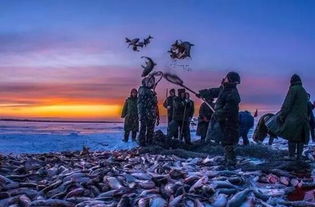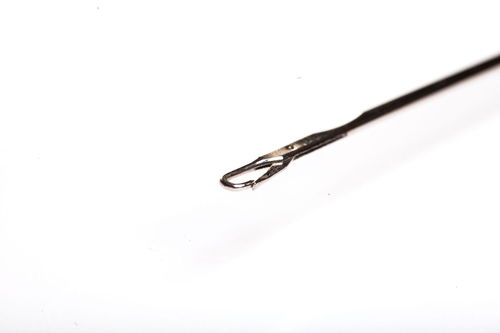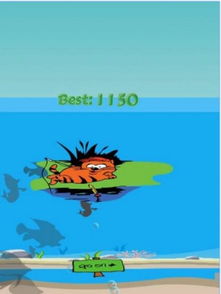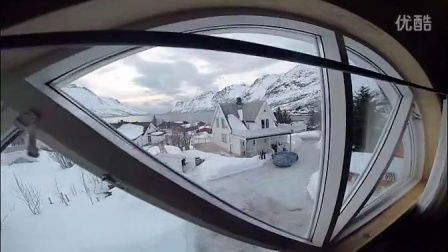Content:
Fishing in waterways can be an incredibly rewarding experience, offering anglers a chance to catch a variety of fish in their natural habitat. Whether you're a seasoned pro or a beginner, mastering the art of fishing in waterways requires a blend of knowledge, skill, and patience. In this article, we'll delve into the essential techniques that can help you improve your chances of success when fishing in various types of waterways.
Understanding Waterways
Before diving into the fishing techniques, it's important to understand the different types of waterways you might be fishing in. These include rivers, streams, lakes, reservoirs, and ponds. Each type of waterway has its unique characteristics, which can influence your approach to fishing.
River Fishing Techniques
Choose the Right Gear: For river fishing, you'll need a rod and reel designed for the specific type of fish you're targeting. A good all-around setup for river fishing includes a medium-heavy action rod and a spinning reel with a good drag system.
Identify the Current: Rivers are dynamic environments, with currents that can dictate where fish will hold. Learn to read the current and position yourself accordingly. Fish often stay in areas where the current is slower, such as behind rocks or around logs.
Use Live Bait or Lures: Depending on the species, live bait or artificial lures can be effective. For example, live bait like worms or minnows can be great for catching panfish, while lures like spinners or crankbaits can attract bigger fish like bass or trout.
Cast and Retrieve: When fishing in rivers, a constant retrieve can be effective. Cast your lure or bait into the water and retrieve it at a consistent pace, mimicking the natural movement of prey.
Adjust to the Weather: Weather conditions can significantly impact river fishing. Overcast days or times when the sun is low can be more productive as they reduce the glare and spook fish.
Stream Fishing Techniques
Use Light Gear: Streams often require more delicate techniques, so use a light rod and reel. A fly rod can be particularly effective for catching trout and other species in streams.
Match the Hatching Cycles: Many stream fish are highly sensitive to the environment and often feed on insects. Understanding the hatching cycles of these insects can help you choose the right fly patterns.
Present Your Fly or Lure Naturally: In streams, it's crucial to present your fly or lure in a way that mimics the natural movement of the prey. This often means a more gentle and lifelike presentation.
Observe the Water: Streams can be unpredictable, so it's important to observe the water and adjust your approach accordingly. Look for areas with deeper holes, logs, or other structures where fish might be holding.
Lake and Reservoir Fishing Techniques
Choose the Right Spot: In lakes and reservoirs, fish can be spread out, so finding the right spot is crucial. Look for areas with vegetation, drop-offs, or structures that can attract fish.
Trolling and Casting: Trolling can be effective for covering a lot of water, while casting can be more targeted. Use a variety of lures and baits to see what works best in your particular lake.
Understand the Water Temperature: Fish are more active in warmer water, so fish deeper in colder months and closer to the surface in warmer months.
Use the Right Bait: For lake and reservoir fishing, you can use a wide range of baits, from live bait to artificial lures. Understanding what the fish are feeding on can help you choose the right bait.
Pond Fishing Techniques
Keep it Simple: Ponds are often easier to fish than larger waterways, so simpler techniques can be more effective. A simple rod and reel with a variety of baits can often yield good results.
Find the Fish: Ponds can be smaller and more predictable, so locating where the fish are holding can be easier. Look for areas with deeper water, weed beds, or other structures.
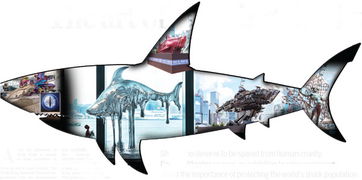
Patience is Key: Ponds can be quieter and less crowded, which means you'll need to be patient. Spend time observing the pond and adjusting your approach.
Final Thoughts
Fishing in waterways can be a complex endeavor, but with the right techniques and a bit of practice, you can increase your chances of success. Remember to always respect the environment and the fish you're targeting. By understanding the specific characteristics of the waterway you're fishing, choosing the right gear, and adapting your techniques, you'll be well on your way to becoming a master angler in various waterways. Happy fishing!

